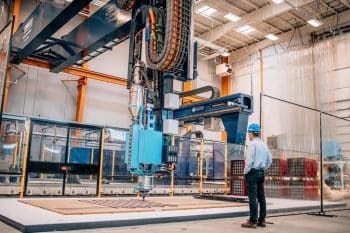Home » US Business & Employment News » How Businesses Can Adapt to the AI revolution
How Businesses Can Adapt to the AI revolution
https://www.whatjobs.com/news/usa/navigating-the-artificial-intelligence-revolution-how-businesses-can-adapt

The advent of Artificial Intelligence (AI) has ushered in a revolutionary era, fundamentally altering the way businesses operate, innovate, and deliver value.
The AI revolution is not merely a technological shift but a comprehensive transformation affecting various aspects of business, from operations and strategy to customer interactions and decision-making processes.
In this dynamic landscape, businesses must adapt to harness the potential of AI effectively, ensuring sustainable growth and competitive advantage.
Need Career Advice? Get employment skills advice at all levels of your career
Understanding the Artificial intelligence Revolution
- Technological Advancements: AI technologies, including machine learning, natural language processing, and robotics, are evolving at an unprecedented rate, enabling automation and intelligent decision-making across various business functions.
- Data-Driven Decisions: The ability to analyze vast amounts of data and derive actionable insights is a hallmark of AI, empowering businesses to make more informed and strategic decisions.
- Customer Experience Enhancement: AI enables businesses to personalize customer experiences, predict customer needs, and automate interactions, thereby enhancing customer satisfaction and loyalty.
Strategies for Navigating the AI Revolution
Embracing a Culture of Innovation
- Continuous Learning: Encourage a culture that prioritizes learning and upskilling, ensuring that employees are equipped to work alongside AI technologies.
- Collaborative Innovation: Foster an environment where technologists and business leaders collaborate to identify opportunities for AI implementation.
Investing in Talent and Technology
- Skill Development: Invest in training programs to develop the skills necessary to leverage AI technologies effectively.
- Hiring Expertise: Attract and retain talent with expertise in AI, data science, and related fields to drive AI initiatives.
Implementing Ethical and Responsible AI
- Ethical Framework: Develop a robust ethical framework to guide the development and deployment of AI technologies, ensuring fairness, transparency, and accountability.
- Regulatory Compliance: Ensure that AI applications comply with relevant regulations and standards to mitigate risks and protect stakeholder interests.
Leveraging Data Effectively
- Data Management: Establish robust data management practices to ensure the availability, accuracy, and security of data.
- Data Analytics: Utilize advanced data analytics to derive actionable insights and inform strategic decision-making.
Enhancing Customer Experiences
- Personalization: Leverage AI to analyze customer data and deliver personalized experiences, products, and services
- Automated Interactions: Implement chatbots and virtual assistants to automate customer interactions, providing timely and efficient service.
Looking to boost your online brand? Create your FREE business profile at WhatBiz? Here
Optimizing Operations through Automation
- Process Automation: Identify and automate repetitive and time-consuming processes, enhancing efficiency and reducing costs
- Predictive Maintenance: Utilize AI to predict equipment failures and optimize maintenance schedules, minimizing downtime and maximizing operational efficiency.
Case Studies: Successes and Lessons
- Retail: Companies like Amazon utilize AI for personalized recommendations, optimizing supply chains, and automating warehouses, demonstrating the transformative impact of AI on customer experience and operational efficiency.
- Healthcare: AI applications in diagnostic imaging, drug discovery, and personalized medicine exemplify the potential of AI to enhance service delivery and drive innovation in healthcare.
The Artificial Intelligence revolution presents both immense opportunities and significant challenges for businesses.
By embracing a culture of innovation, investing in talent and technology, implementing ethical and responsible AI, leveraging data effectively, and enhancing customer experiences.
And optimizing operations through automation, businesses can navigate the complexities of the AI revolution, harnessing its potential to drive growth, innovation, and competitive advantage.
In navigating through the AI revolution, businesses must remain agile, adaptable, and forward-thinking, ensuring that they are not merely keeping pace with technological advancements but leveraging them to create value.
Enhance sustainability, and ensure long-term success in an increasingly digital and interconnected global economy.
Follow us on X, LinkedIn, and Facebook.














